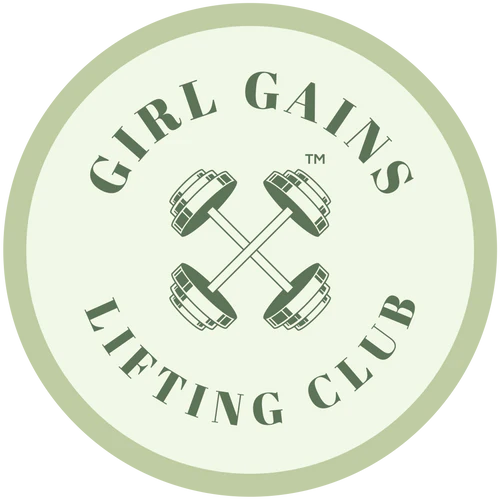
Dickinson’s Girl Gains Club, established in 2020 by Helena Holley ’25 and Alex Sonfield ’25, is a chapter of a national organization and a club that promotes weightlifting for women. By providing a supportive community for its members, Girl Gains helps women feel comfortable in their bodies in gym culture that is predominantly male.
In an interview with current President Doretta McCully ’26 and Vice President Brie Farrell ’26, Girl Gains was described as a “safe space for people.”
Commenting specifically on the growing popularity of weightlifting in today’s culture, McCully emphasized the value of women having a place like Girl Gains to learn about weightlifting and implement it into their routine. “It’s important that girls can build muscle mass when they’re able to […] it’s better to start weightlifting early in a community that supports you,” she said.
To educate members of the club on how they can efficiently workout and maintain a healthy workout routine at all stages of their cycle, guest speaker Jami Shields gave a presentation surrounding cycle syncing on November 20.
As a fitness transforming, hormone and metabolism specialist, Shields owned her own fitness center in Carlisle and has won competitions for the Organization of Competitive Bodybuilders (OCB) and the National Physique Committee (NPC). In her talk, Shields taught members how to manage hormone levels while also reaching fitness goals.
Titled “Empower your Health: Cycle Syncing for Young Women,” Shields introduced the audience to cycle syncing, which is “the practice of aligning one’s lifestyle choices (nutrition, exercise and self-care) with the phases of one’s menstrual cycle.”
Since hormone fluctuations are known to impact energy levels, mood, metabolism and productivity, Shields attributed cycle syncing with improved energy, reduced premenstrual (PMS) symptoms, enhanced metabolism, weight management and mental clarity.
Touching on each of the four phases of the menstrual cycle, Shields touched on ways to get the proper nutrition during each phase. Practices such as fasting were encouraged for the menstrual and ovulatory phases, with a focus on intaking anti-inflammatory foods in the former phase and light, hydrating foods in the latter phase.
During the follicular phase, which she calls “the manifestation phase,” Shields instructed students to focus on energy-boosting foods like fresh fruits and lean proteins, while increasing carb intake. The luteal phase, or “the nurturing phase,” as Shields calls it, revolves around complex carbs and rich foods.
Overall, she encouraged students to try eating as many whole foods as possible, as preservatives also influence hormones, and the whole point of cycle syncing is to support one’s hormones during each phase.
Regarding exercise, Shields emphasized the importance of tweaking exercise routines during one’s menstrual cycle. Walking, yoga and restorative movements were encouraged for the menstrual cycle. More stress can be put on the body during the follicular phase with strength training and high energy workouts. Cardio or sports were placed in the ovulatory phase, and moderate intensity exercises like pilates and walking fit in the luteal phase. Prioritizing self-care was also encouraged.
As she concluded her presentation with Girl Gains, Shields talked about some of the amazing benefits of cycle syncing, emphasizing that “you’ll build a deeper connection with your body.”
Following the presentation, Farrell touched on the benefits of having the Girl Gains community on campus, and the possibilities offered by the club to make new, productive connections with other women on campus. “It’s nice to meet people through the club, go to the gym together, or partake in individual events [with one another],” she said.
Girl Gains, described by its leadership as “for anyone,” is a safe space to grow one’s physical health in a supportive community of women. As Shields’ presentation shows, the club is not only a place to develop new friendships in the gym, but also to learn better ways to improve one’s wellness overall, which ultimately feeds into physical health too.











